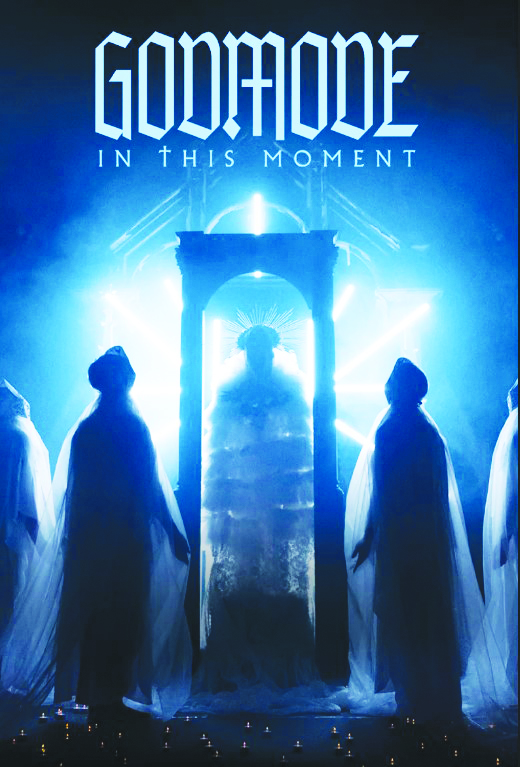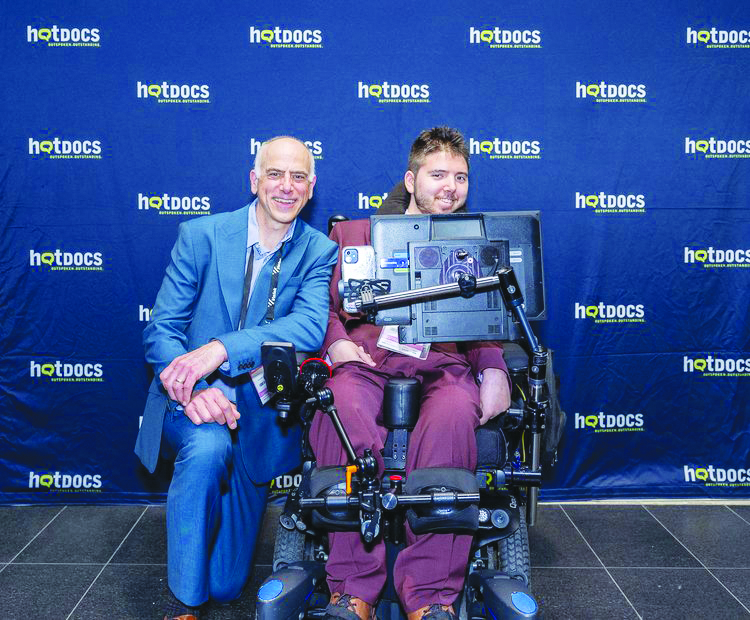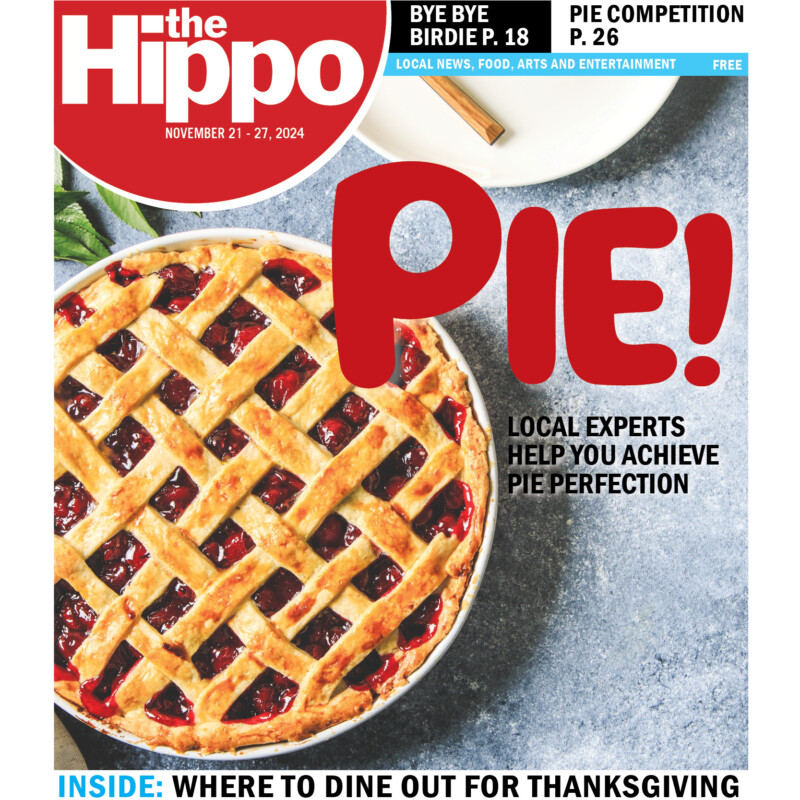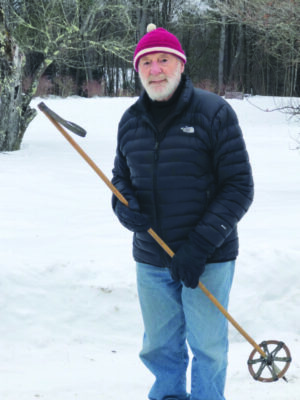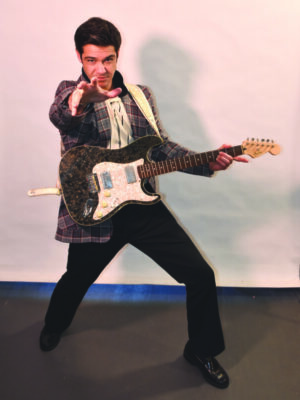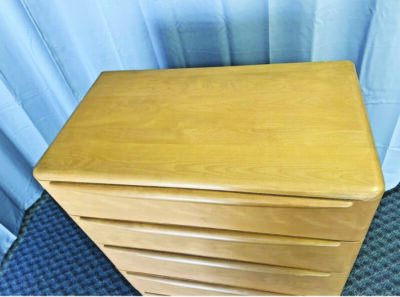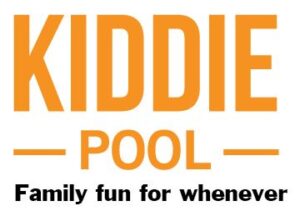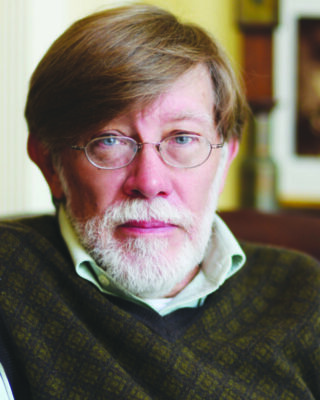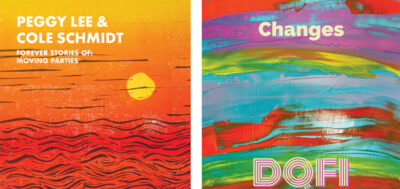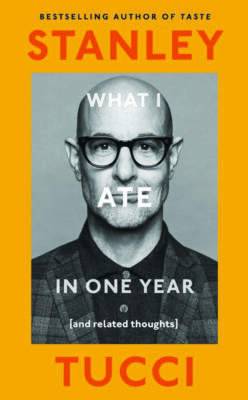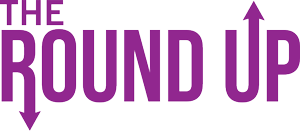Father and son filmmakers talk about their newest documentary
The Ride Ahead is a documentary from the father-son director team of Dan and Samuel Habib that follows 21-year-old Samuel as he navigates the challenges of growing up while he experiences GNAO1, a rare genetic neurodevelopmental disorder that caused his cerebral palsy, epilepsy and speech challenges, according to the film’s website. The duo won at the 44th Annual News and Documentary Emmy Awards in 2023 with their New York Times Op-Doc My Disability Roadmap, which is essentially a trailer for this documentary. The film was first screened as a New Hampshire premiere at the opening night of the New Hampshire Film Festival. The Concord premiere will be on Monday, Dec. 2, at the Bank of NH Stage (16 S. Main St.) at 6 p.m. The Ride Ahead will also be screened at Red River Theatres (11 S. Main St., Concord) at various times from Tuesday, Dec. 3, to Thursday, Dec. 12. Visit rideaheadfilm.com for more information or ccanh.com and redrivertheatres.org for tickets.
Can you give a brief overview of the film and the kind of the journey that this endeavor has taken you and Samuel on?
Dan Habib: The Ride Ahead is a new feature-length documentary that Samuel and I just finished this past year. It’s been four years in the making. We produced it right through Covid, which was a big challenge, but it started out because, as Samuel may share a little bit in his comments, Samuel had a very inclusive school experience, a lot of great friends here in Concord, in Concord High School, but then you graduate and it’s very confusing to know how to transition to adulthood for a lot of people, not just people with disabilities. Samuel had a lot of questions about his education, his employment, relationships, where he’s going to live, how he’s going to make new friends, right? I mean, things you talk about all the time. So we just hatched this idea that he could both learn how to navigate the path of adulthood by reaching out to mentors in the disability world who had already been through that transition about their experiences while making a film about that journey, about that exploration of all these questions.
We started researching it back in 2019 and Samuel started thinking about people he wanted to interview, some of whom he knew for years, like Pete Jones and Judy Heumann and Bob Williams, some people he had just heard about and he wanted to reach out to. The film is documenting Samuel’s journey into adulthood while he reaches out for guidance from these badass adults with disabilities all over the country. We decided to also film it from a first-person point of view. Samuel has two GoPro cameras mounted on his wheelchair, one facing in, one facing out, that filmed Samuel’s life experiences throughout that time, and then we would hire professional crews to film the interviews. One of the really important things we decided from the beginning was to hire a majority disabled film and outreach crew. The majority of the people that had paid jobs in this film are disabled people And that’s very unique in the documentary industry, so we’re really proud of that too.
What were some challenges in making the film?
Samuel Habib: Setting up and getting all of the interviews done was the most challenging part of creating the film. We had a lot of misadventures during our travels. On our flight to Indianapolis to interview Andrew Peterson, they turned my power wheelchair on its side both ways — and it got damaged both ways! On our trip to D.C. to interview Judy Heumann and Bob Williams, we had a six-hour flight delay, and then as we were finally boarding our plane, another passenger talked down to me, like I was a 3-year-old. On our New York City trip to interview Keith Jones and Maysoon Zayid, I had a seizure. But we still got the filming done on all the trips!
What were some of the highlights of making the film?
SH: The interviews were awesome, they blew my mind. I reviewed the best sections from the interviews with my dad and we picked out the most powerful lines. I wanted to have lots of humor in the film, so we included some hilarious lines from interviews, especially Keith Jones and Maysoon Zayid. But Judy Heumann was pretty funny too. My favorite line in the film is Keith telling me his advice for sex: Rule number one…. Rule number two…. All the way down to 100: ‘Bag it up.’ And then we added the animation of the condom going all the way over me and my wheelchair — that really cracked me up.
What do you want audiences to take away from the film?
SH: My goal for the film is that people won’t talk down to disabled people. I want everyone to know that disabled people demand respect and rights. And I want other young adults with disabilities to have the same opportunities that I’ve had for health care, inclusive education, college, assistive technology, jobs, making friends, advocacy, and independent living. I hope parents who will watch this film will see that they should include their kids in everything, like my family has done. And I hope schools and colleges who watch this film will commit to include disabled students alongside their non-disabled peers. All of my schools have been inclusive and that made a big impact on my education, and led to my life now as a filmmaker. Our film will let people learn from disability role models like Judy Heumann and Bob Williams about how to live a full life with a disability as they transition to adulthood. This film will help people understand how to talk to me and other people with communication challenges. Be patient and do not talk down to me. Ask me how I best communicate. Slow down the pace of the conversation to create more space for me to contribute. If you don’t understand me, ask me to repeat what I said. If I’m typing on my device, don’t start another conversation — please wait for me to finish.
Young people with disabilities who have seen the film so far have told me that they have the same questions as I do about dating, sex, moving out of their own family’s home, how to respond when people talk down to them, work, and college. That means a lot to me.
Would you want to talk about how important community has been in making the film?
DH: I think film is the most team-oriented creative medium because you have to work with so many talented people to pull it off. We did build a community, you know, as I said, a majority disabled community of creative people to do the film. All of our musicians and people who did the score are all disabled, the animators are disabled, social media manager, our co-producer, our executive producer. So that was really important to us because if Sam was going to tell his story about his own perspective on living as a disabled man, we wanted the whole team to understand that perspective and many of them to have lived it. That was a big part of building community right there but I also think, Samuel, would you say that building community among your mentors, the people like Maysoon and Keith and others, was that also how you would see community-building being important here?
SH: Yeah.
DH: Yeah. So I think also building this community of mentors that Samuel could continue to learn from … .
What are you up to now, Samuel?
SH: I continue to work part time at the Westchester Institute for Human Development doing film work and presentations. The past few years, I’ve been in college at NHTI, the local community college in Concord, New Hampshire, working toward my liberal arts associate’s degree. I have been taking one class a semester and have a 3.0 GPA. So far I have taken Sociology, Cultural Anthropology, Psychology, Contemporary Ethical issues, U.S. History, Social Media Strategy, Mindful Communications, Western Civilization, Geology, Statistics, and Environment and Society. I also joined the student senate club at school. I’m taking this semester off for the film launch, and then I’m planning to attend Southern New Hampshire University, a four-year college. I also had a job last summer at a music venue in New Hampshire called Meadowbrook, scanning tickets. I got to see a bunch of free shows! I’m planning to volunteer at a local performing arts center this fall and winter. Through my film work and the job and volunteer work, I am hoping to make more friends and maybe find a girlfriend. —Zachary Lewis
The Ride Ahead
Concord premiere Monday, Dec. 2, at 6 p.m. at Bank of NH Stage, 16 S. Main St., ccanh.com
Tickets $22.25 plus small fee
Screenings Tuesday, Dec. 3, to Thursday, Dec. 12, at Red River Theatres, 11 S. Main St., Concord, redrivertheatres.org; typical screening times are 1:30, 4:30 and 6:30 p.m.
Featured image: Dan and Samuel Habib.. Courtesy photo.

